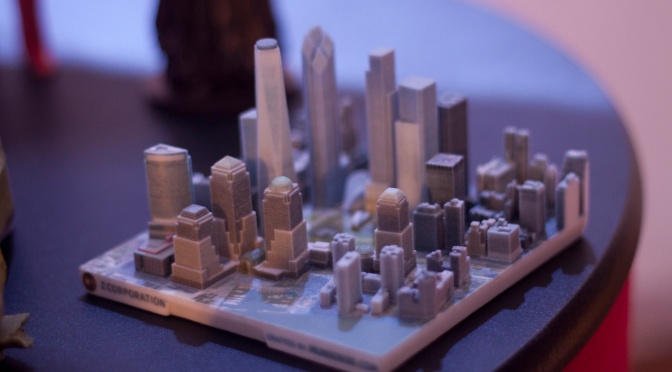The final project report from the feasibility study led by Dr Paolo Aversa at Cass Business School and Dr Sebastiano Massaro at Warwick Business School is now online. “Driving Innovation in redistributed manufacturing: A feasibility study in the motorsport industry” describes results of their work undertaken during 2016. The results of this project were presented at the 3DP-RDM event 3D Printing Where and How on 31st January 2017 at the IfM in Cambridge. More information about their project can be found on their project website.
Executive summary
Paolo Aversa and Sebastiano Massaro
This feasibility study investigates the level of adoption of additive manufacturing (AM) technology in the British motorsport industry and to what extent this is being employed for competitive advantage. The themes of redistributive manufacturing and technological innovation are explored to understand how, and to what extent, the British motorsport industry has aligned itself to AM technology. AM has been described in recent media as a panacea, a solution for all manufacturing problems, disrupting conventional manufacturing techniques with its potential to create geometrically complex products in any location.
Investigating these themes involved collecting primary data through (1) a quantitative survey of manufacturing companies involved in British motorsport, and (2) a series of qualitative interviews with experts in the field.
Where the main benefits of AM revolved around the production of structurally complex parts and reduction in production lead time, findings from the survey reveal that AM does not fully satisfy production needs. In combination with the need to recruit additional skilled labour, results suggest that the benefits of employing AM do not currently outweigh the overall costs. On the behavioural side we found that those managers and executives who are more keen in adapting AM are overall higher in risk-taking.
Our interviewees perceive that AM technology will continue to proliferate through the British (and Italian) motorsport supply chain, supplanting conventional techniques for the manufacture of low-volume and complex parts. The close proximity of specialist manufacturers to race-teams in the British motorsport valley® cluster is perceived to prohibit any notable redistributive manufacturing but has demanded agility from those suppliers in response to the reduced development cycles that AM facilitates. As innovations in materials, processes and hardware continue to overcome challenges with reliability, integrity and cost of AM products, a new generation of university graduates are expected to be educated in the true value of AM, designing for use and championing the technology as a viable and crucial augmentation to existing conventional manufacturing techniques.
In summary, the benefits of AM processes are ingrained throughout the motorsport supply chain which has adapted, rather than re-configured, to accept these advanced techniques. The future of AM will be secured by innovations that remove physical limitations, giving way to an industry that will benefit from a hybridisation between conventional and AM technologies.



